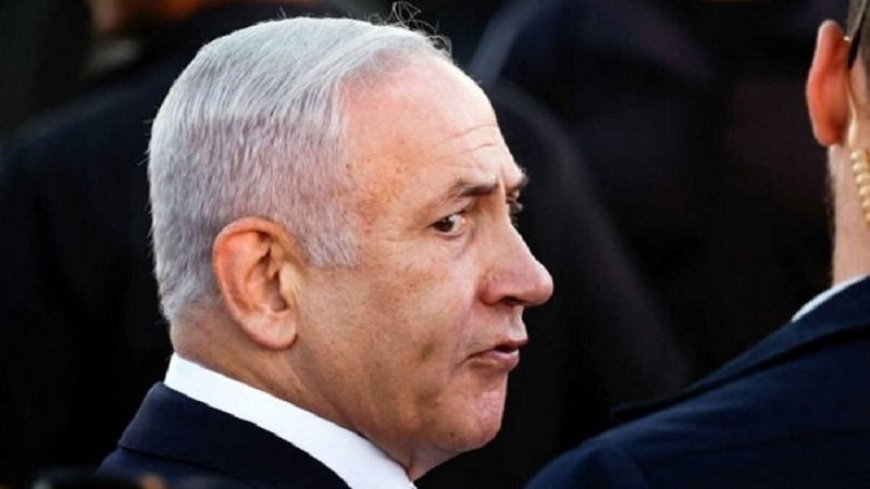Netanyahu's US Congress Speech Sparks Controversy and Protests
The speech of the Prime Minister of the Zionist regime, Benjamin Netanyahu, in the US Congress caused disagreements and gave rise to various reactions

Israeli Prime Minister Benjamin Netanyahu's speech to the U.S. Congress on July 24 has ignited a wave of controversy and protests both within the United States and abroad. The speech, delivered in the absence of Vice President Kamala Harris, was marked by accusations against Iran and claims about the ongoing conflict in Gaza.
Netanyahu's address was met with significant backlash from members of Congress. A notable 128 representatives chose to boycott the speech in protest. Democratic Representative Rashida Tlaib of Michigan condemned Netanyahu's presence, labeling him a "genocide and war criminal." Tlaib's remarks underscore the deep divisions and strong sentiments surrounding the Israeli-Palestinian conflict.
The speech also prompted a protest by thousands of Americans outside the Capitol. Many demonstrators expressed their opposition to Netanyahu's policies and his government's actions in Gaza.
Criticisms from Key Figures
Former House Speaker Nancy Pelosi criticized the speech as "the worst of the speeches by foreign officials who have addressed Congress." Pelosi expressed concern about the ongoing conflict and called for Netanyahu to address the demands for a ceasefire and the return of Israeli prisoners held in Gaza.
Independent Senator Bernie Sanders also voiced strong criticism, describing Netanyahu as both a "war criminal" and a "liar." Sanders highlighted the dire humanitarian situation in Gaza, citing reports from humanitarian organizations about severe food shortages among Palestinian children. He questioned the integrity of Netanyahu's claims and condemned the decision to allow him to speak in Congress.
Senator Chris Murphy described Netanyahu's speech as a setback for U.S.-Israel relations and criticized it as a means to bolster Netanyahu's political position rather than address pressing issues like the prisoner exchange agreement and the ongoing conflict.
International and Palestinian Reactions
Riad Mansour, Palestine's representative at the United Nations, characterized Netanyahu's speech as riddled with falsehoods and indicative of his increasing international isolation. Similarly, Osama Hamdan of Hamas denounced the speech as full of lies and criticized Netanyahu for trying to project a false image of normalcy in Israel.
Hamas also issued a statement condemning the U.S. support for Israel, accusing Washington of complicity in the ongoing conflict and war crimes against Gaza. They argued that Netanyahu's speech should have been an opportunity for his arrest and trial at the International Criminal Court rather than a platform for furthering his agenda.
The People's Movement for the Liberation of Palestine echoed these sentiments, accusing Netanyahu of using the speech to justify the alleged crimes and genocide committed by the Israeli military in Gaza. They criticized the U.S. for its support of Israel, asserting that it plays a central role in the conflict.
The Palestinian Islamic Jihad movement similarly denounced Netanyahu’s address as deceptive, suggesting that it aimed to secure U.S. backing for further military aggression in the region. They refuted Netanyahu's claims of minimal civilian casualties, particularly concerning the recent attacks on Rafah.
Domestic and Regional Impact
Netanyahu’s visit to the United States has also sparked protests in the occupied territories. Various groups, including former officials and families of Israeli prisoners, have criticized Netanyahu's visit, viewing it as a grave injustice given the ongoing conflict and the lack of progress in prisoner negotiations.
Since October 7, 2023, the Israeli military actions in Gaza have resulted in over 39,000 Palestinian deaths and more than 90,000 injuries. The conflict has drawn widespread international condemnation and calls for a ceasefire, with many viewing Netanyahu's visit and speech as a provocative move amid the ongoing humanitarian crisis.
As tensions continue to escalate, the global community remains focused on the humanitarian impact of the conflict and the broader implications of Netanyahu's visit and rhetoric.













































